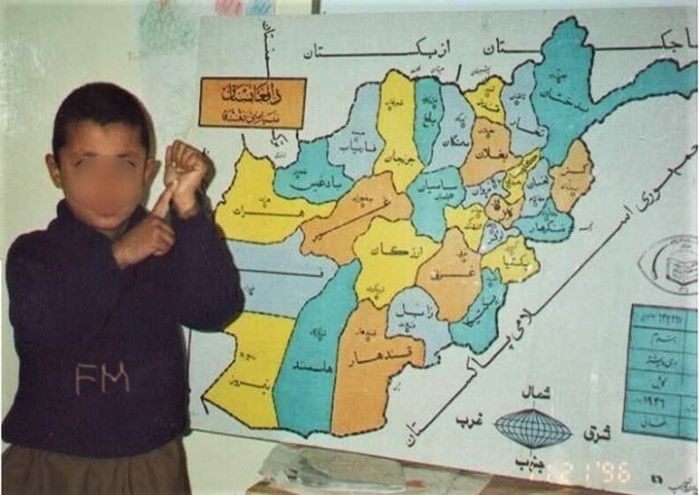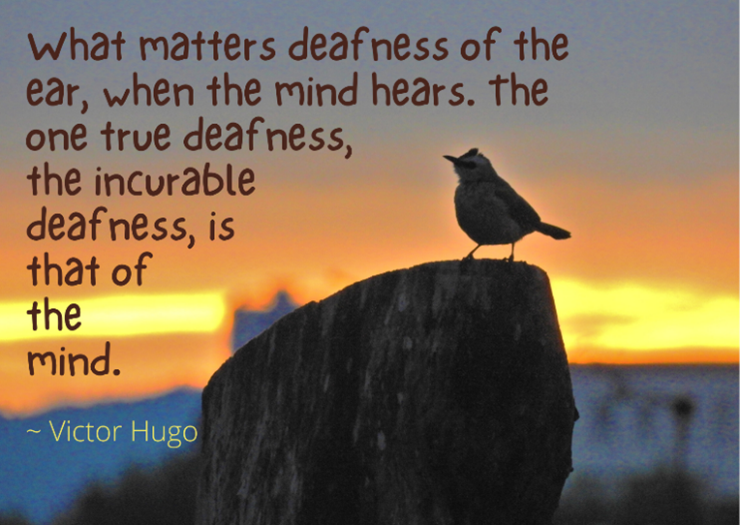Gratitude is the memory of the heart. I love this definition of gratitude, which I have been using for the longest time.
You may think that I coined this phrase up, ah.. but I am not that clever. I borrowed it because I love the connotation of bubbling joy welling out of a grateful heart. Take a guess where this phrase was originally coined – no, not by an English speaker, but by a French man, a deaf man called Jean Massieu, who expressed this beautifully in French Sign language!
The setting
This happened in 18th Century France, a time when deaf people were considered useless creatures, gesturing and pantomiming to themselves, unable to learn, much like what Amman, the oralist said, “What stupidity we find in most of these unfortunate deaf! How little they differ from animals!”.
They could not even learn faith, even as the Abbe de l’Epée (known as father of the deaf) was keenly aware of Paul’s passage in the book of Romans that “faith comes through hearing”, and St Augustine who concluded that this impairment prevents faith.
It is to the credit to two (hearing) priests, Abbe de l’Epée and his successor Abbe Sicard who established the National Institution for Deaf-mutes, the first public school for the deaf in history, which became a model and inspiration for generations to come.
And one of them is Jean Massieu, a young shepherd boy who had his wish granted when he was accepted to this school around age 13. He brilliantly mastered the French language in 4 years, he became a superb teacher, scholar and advocate, bridging the two worlds. He taught Abbe Sicard not only the elements of sign language (syntax, grammar), but also respect for the deaf. Princes and philosophers came to interview him, including the Pope himself, in 1805, when Pope Pius VII, visited their school and gave him a copy of The Lives of the Popes.
Massieu once said, “When I was a child, my father made me pray morning and evening with gestures: I got on my knees, clasped my hands, and moved my lips, imitating speaking people when they prayed to God. Today I know there is a God, the Creator of heaven and earth. But as a child I worshipped the sky, not God.”
During that time, around that tumultuous period of the French Revolution, Abbe Sicard would bring his students to do public demonstration classes, to promote deaf education and to gather support to retain the school. It was in one of these demonstrations, that the audience began to ask the students these questions, assuming that they could deal only with concrete things.
Question: What is God?
Massieu: The necessary Being, the sun of eternity, the mechanist of nature, the eye of justice, the watchmaker of the universe, the soul of the universe.
Question: What is the difference between desire and hope?
Massieu: Desire is a tree in leaf, hope is a tree in bloom.
Clerc (Massieu’s student): “Desire is a tendency of the heart; hope is a trust of the mind.”
Question: “What is gratitude?”
Massieu (looking deeply into Sicard’s eyes): “Gratitude is the memory of the heart.”
Gratitude is the memory of my heart as I recall my years working alongside the Afghan deaf community, to develop their own indigenous sign language. Massieu was considered the first deaf teacher ever, he remain a symbol worldwide of what a deaf man could achieve through education—more than that, a symbol of the power of education to create a new, egalitarian society in the wake of many changes.

Let me end with this remarkable story of a deaf boy in Jalalabad, Afghanistan, during the late 90s, a time when the country was ravished by civil war, stricken with poverty and disease. FM was one of the students in our School for the Deaf, a place where he found community, where his heart and mind was opened to the world around him, where he could thrive using his natural language. He learned how to read and write Pashtu, the official language then. One morning on his way to school he was abducted by masked men, they used chloroform to disempower him. We got news only when his father came and realised that his son was not in school, and a frantic search began. Our hearts feared the worse, as abduction of children were not uncommon – for child labour, for sexual purposes or for their organs. The odds were not good, as 95% of them never make it home. Many prayers were offered to God, and imagine our joy and relief when he appeared three days later. He related how he woke up in a car full of men, how they pass through the check-points, and at one of them he secretly dropped a written note to the guards, and that helped the police to track him down. Besides Divine Protection, his quickness of mind and his literacy skills literally saved his life!
An example of the power of education!
An example of Gratitude being the Memory of the heart, recalling the founding fathers who gave these young kids the gift of expression, their very own natural language that opens up their minds to hear, their hearts to love and wisdom.
And such sacred memories can save us with hope, as Dostoevsky once said, “For if a man has only one good memory left in his heart, even that may keep him from evil … and if he carries many such memories with him into life, he is safe till the end of his days”.
Let Gratitude then be the Memory of our hearts!
* Excerpts taken from: “When the mind hears, A History of the Deaf” by Harlan Lane.
To know more about Soo Choo, Click Here!



In learning from what you have related, I would like to dedicate a song – the sounds of silence – by Simon and Garfunkel.
Christopher Fernández